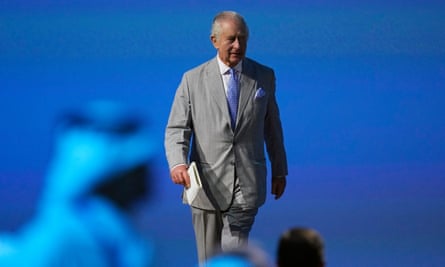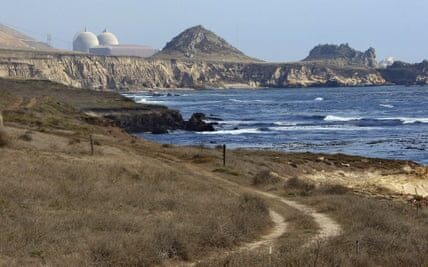“Living luxuriously while reducing carbon emissions: European royalty tackling the issue of climate change.”
W
When Prince Frederik ascends to the throne on Sunday, he will inherit the Danish crown from his mother, Queen Margrethe II. While she has questioned the impact of human pollution on global warming, he is dedicated to fulfilling his duty to advocate for more decisive measures to address climate change.
“I believe it’s crucial for me to convey a message to others,” he stated in a 2010 interview with the Financial Times, reflecting on his journey to the melting Arctic alongside the heirs to the Norwegian and Swedish thrones. “We must persuade the general public that changes are occurring and that we must take action.”

Other European countries besides Denmark are utilizing their monarchies to spread awareness about the negative effects of global warming. In his recent new year speech, Norway’s King Harald expressed his shared concern and urgency with young people in regards to preserving the environment. Sweden’s Crown Princess Victoria also attended a climate conference in 2022 and collaborated on a book about exploring Sweden by foot in 2020. Monaco’s Prince Albert, known for his love of yachting, has been advocating for ocean protection through his foundation for multiple years. Spain’s Queen Letizia spoke about using “degrowth” as a solution to reach emission targets at a climate communication seminar in November.
However, out of all the monarchs in Europe, King Charles of Britain has been the most outspoken about environmental issues. He first brought attention to the dangers of pollution and the high costs of cleaning it up over 50 years ago and has continued to speak out against corporate lobbyists and climate change deniers. In a 2013 meeting with government officials and business leaders, he stated, “The consequences of delaying action are so significant that we cannot wait until it’s too late.”
Certain activists have rejected the language used as insincere. The remaining monarchs in Europe, including kings, queens, princes and princesses, consist of some of the wealthiest individuals on the continent. Many of them live extravagant and environmentally damaging lives due to their inherited wealth. Some also possess large amounts of private land, often obtained through the violent conquests of their predecessors, which could be utilized for the betterment of society and alleviate strain on the natural world.
However, monarchs also have a large amount of backing from the public.
According to Jean-Pascal van Ypersele, a climate physicist at Université catholique de Louvain in Belgium and former vice-chair of the IPCC, the royal families of Belgium, Sweden, and Monaco have shown a positive commitment to climate and the environment, within their own limitations. This has been well-received by the majority of the population.

“The one issue I would bring up is regarding the matter of coherence,” he stated. “Their lifestyle is heavily reliant on carbon, and it would be beneficial to see more indications in their speeches of their efforts to align with their beliefs.”
Several members of the monarchy have deviated from the norm of using private jets and taking vacations on luxurious yachts. According to experts, this action can inspire a larger population to adopt more environmentally-friendly lifestyles.
According to Kimberly Nicholas, a sustainability scientist at Lund University in Sweden, elites serve as examples and have a significant impact on establishing cultural standards and goals. Seeing our crown princess wearing jeans and hiking on a trail accessible by public transportation within an hour from your home sends the message that living a luxurious lifestyle can also be environmentally-friendly.
The pictures inspire the idea of taking a train journey to discover a different area of the country for one’s next vacation, instead of flying to a tropical destination.
Certain researchers have proposed that members of royalty possess the ability to effectively communicate with older and more nationally-minded individuals. In cases where individuals align with the monarchy but hold skepticism towards scientists and activists, a monarch may be more persuasive in conveying the risks associated with fossil fuel consumption and environmental destruction.
Avoid the newsletter advertisement.
after newsletter promotion

King Harald of Norway enjoys fishing, hunting, and sailing. He and Queen Sonja are known for being outdoorsy and environmentally conscious, often going on hikes to appreciate nature.
According to Thea Gregersen, a researcher in climate psychology at the Norwegian Research Centre, the king may have the potential to reach an audience that individuals like Greta Thunberg or green political parties cannot.
Monarchs, however, are confined by unwritten regulations that prevent them from expressing political opinions. Although Harald has conveyed messages promoting environmental preservation, he has avoided addressing the more challenging issue of the Norwegian oil industry’s impact on it.
Gregersen stated that the king is skilled at avoiding division. However, this could also mean that he is not very detailed when it comes to determining the necessary steps to address climate change.
In countries in the Nordic region where there is already significant political and public backing for addressing climate change, the impact of unremarkable messages on the environment may be reaching their maximum potential.
Joachim Peter Tilsted, a researcher at Lund University studying decarbonisation politics, stated that the royals aim to steer clear of contentious topics and refrain from sparking political discussions. Tilsted also expressed skepticism that the Danish government, known for its consensus-based approach and with a wide range of parties supporting their climate goals and a 2045 net zero target, will take any actions that may be seen as going beyond this agreed upon sentiment.
Source: theguardian.com



